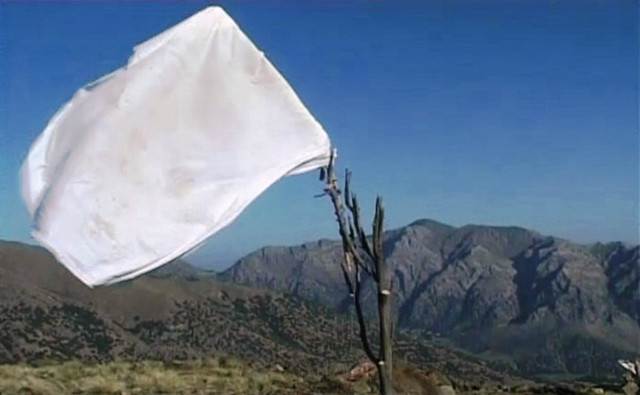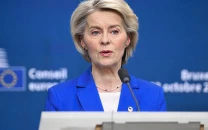Reaction: Plea makes waves in Afghanistan
Unless peace returns to Afghanistan, it is not possible to guarantee peace in Pakistan, the Hizb leader said.

Afghan officials and an insurgent group reacted positively to an impassioned appeal from Pakistan Prime Minister Yousaf Raza Gilani for all stakeholders to enter into an intra-Afghan dialogue in order to stabilise their country.
The Hizb-e-Islami Afghanistan (HIA) – the group led by former warlord Gulbudin Hekmatyar – welcomed the initiative and even offered to lend its support to what it said was a “vindication of its principled stand”.
“We’ve been saying all along that all stakeholders in the Afghan imbroglio should sit together, discuss the issue threadbare, and come up with a viable solution without foreign interference,” the group’s political whip Dr Ghairat Baheer told The Express Tribune.
Asked if the Hizb-e-Islami would declare a ceasefire following the Pakistan leader’s appeal, Baheer said, “Once the Afghans agree on a full package, a ceasefire will automatically come into force.”
However, he cautioned that an intra-Afghan dialogue would not take place until the US-led Nato forces withdraw from Afghanistan.
Unless peace returns to Afghanistan, the Hizb leader said, it is not possible to guarantee peace in Pakistan. “The interests of Pakistan and Afghanistan are inter-woven. Our destiny is common,” he added.
The Taliban, on the other hand, reacted cautiously to the move. Their spokesperson Zabihullah Mujahid told The Express Tribune that the Taliban leadership would discuss the matter and issue a formal reaction.
Afghan Ambassador Omar Daudzai said the Pakistani leader’s move was ‘positive’ but he challenged him to take ‘practical steps’.
“Prime Minister Yousaf Raza Gilani and President Hamid Karzai had agreed in their recent telephone conversation to launch such appeals,” Daudzai told The Express Tribune by phone from Kabul.
“We hope that all sides in Afghanistan will come up with a positive response to the Pakistani prime minister’s appeal,” he added.
The Afghan High Peace Council – a body formed by President Karzai to talk to the Taliban – has also welcomed the move. Echoing Daudzai’s remarks, a senior member of the peace council said, “This is a positive step, but Pakistan should take practical steps to help resolve the Afghan crisis.”
“This is important because it’s the first time an elected prime minister of Pakistan has come out to make such an appeal,” Maulvi Arsala Rahmani told The Express Tribune by phone from Kabul.
Rahmani, who was the education minister in the Taliban regime before 2001, believes that Pakistan could make the Taliban come to the negotiating table. “Personally, I believe the Qatar initiative was not possible without Pakistan’s help,” Rahmani said.
In December last year, the Taliban confirmed that it had decided to open a liaison office in the Qatari capital of Doha to explore the possibility of talks with the Americans.
However, Rahmani said that the Qatar talks were not for the final settlement of the Afghan issue. “For a political settlement of the Afghan issue, the Taliban would have to talk to the Afghans,” he said.
Rahmani was upbeat about the Taliban entering the intra-Afghan dialogue at some stage. “They (the Taliban) are Afghans. And in their midst, they have Uzbeks, Tajiks, Hazaras and Pashtuns. They’re sons of the soil. They would have to sit across the table with their countrymen to resolve this issue,” he added.
Afghan analysts say Gilani’s appeal is a “welcome shift” in Pakistan’s policy. “It appears that Islamabad has finally realised the futility of its flawed Afghan policy,” Kamal Sadaat, a Kabul-based security analyst, told The Express Tribune by phone.
“Without a stable Afghanistan, you cannot have peace in Pakistan,” Sadat said. “And the policy of supporting one particular armed group in Afghanistan will not benefit Pakistan.”
(Read: The many faces of Afghan peace)
Published in The Express Tribune, February 25th, 2012.



















COMMENTS
Comments are moderated and generally will be posted if they are on-topic and not abusive.
For more information, please see our Comments FAQ